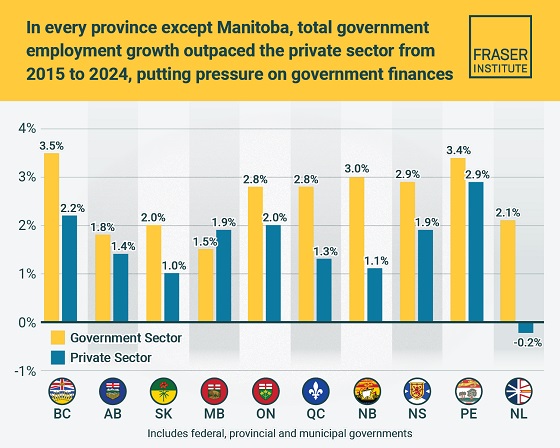Uncategorized
Down But Not Out: The Unsinkable Bob McCown

“I guess I should let you know that I have had two strokes over the last couple of weeks and have been in hospital since. Can’t walk or talk but am getting better very slowly! Hope to get home and back on the podcast as quick as possible!— Bob McCown
Tough news for The BobCat. The 71-year-old has had a major medical setback, and those who know him wish him the best. Here’s what I wrote about this unique broadcast maverick in December of 2020 after he’d written a controversial (shock!) column about his past, present and future.
“The first time I met Bob McCown was on his Global Sportsline show in the fall of 1982. I was the sports editor thingy at TV Guide, and every Friday I’d go on his show to pick NFL games. He was on his first marriage at the time, and I believe one of his kids was around when we pre-taped.
To say I was excited understates my mood. Bob was wearing a Mickey Mouse sweater, he was smoking furiously and the energy in the studio was incandescent as he spoke to producer Mark Askin in the control room. He carried me through the segment, demanding I be interesting, taking contrarian positions to boost the atmosphere. I try not to look at the result which is still on tape in my basement somewhere.
Off-set, he told me what his real bets were for the weekend and about a plan he had to go to Vegas to use his blackjack system to break the bank. (He did eventually author the Vegas move when he was on CJCL radio, doing his show from his place in Vegas. The blackjack system didn’t work, and he returned to Toronto and other glories.)

Later, after I’d made my bones at CBC, he periodically had me on his Friday Round Table on The FAN 1430/ 590. The only rule with Bob was Don’t Be Boring. That meant don’t talk about the Leafs power play or how will the Blue Jays do this weekend in Milwaukee. Or else you wouldn’t be back.
He wanted a take, the big picture, business talk and a healthy dose of American references.The atmosphere was all snark, all the time. And his audience loved it (the panelists did, too, unless Bob got mad at you and banned you). The people who ran sports listened. I used to say that when McCown, who rarely watched much of what he talked about, turned against someone it was over. Toronto sports was run for years by McCown, especially after Harold Ballard snuffed it.
Later, when I was sports media columnist at the Mop & Pail and McCown was battling the suits at Rogers, I’d save Bob for a slow day. I knew if I called he’d fill my ear with industry gossip and some tasty ad hominems for his current enemies. He rarely disappointed.
In short, I’ve known him for a while— less so since moving to Calgary in 1998. And so my take on his volcanic feature in the G&M this week is probably more measured than some others I’m hearing. It’s clear from Simon Houpt’s lengthy description of him that McCown is in some peril of his own making. (No surprise as he’s done “King Midas in reverse” for decades) He’s selling his mansion, scrambling to cover losses from the Mike Weir Winery, losing weight to start dating again.
In the piece he takes shots at Rogers as “idiots” for canning him, describes his latest business tumult, the failure of his last marriage and sarcastically rips his current broadcast partner John Shannon (also canned by Rogers in the purges following their disastrous NHL $5.2 billion brainwave). It’s searingly honest and self-critical. It’s also rambling and sad.
Most of all it’s Bob— or The Bobcat in deference to his Ohio roots. He’s always been the product. He read the room and saw the need for celebrity. So he made himself one in the fashion of the big American flannel mouths like Mike Francesa, Chris Russo, Larry King etc. His tantrums and moods and sullen periods were all part of the act.
Along the way he invented sports radio in Canada, taking it away from earnest hockey pucks talking trades to Marvin Miller discussing labour law during another MLB strike/ lockout. What’s the phrase? Often imitated, never duplicated? His catch phrases became part of the vernacular. One of them, “I don’t give a fadoo” gave birth to Fadoo as his company handle.
On my own radio shows I shamelessly copied his strategy of never having current marble-mouthed athletes on the show (unless the station paid for a spot). He wanted people with edge who’d appeal to the “$500 million a year Bay Street guys” he frequently cites in the G&M. Movers. Shakers. Guys who stood up at the Raptors games in their open-necked shirts and rope jewelry to shout at their developer pals two sections away.
They were his guys, and they insulated him from the suits at Rogers who wanted him gone. When his mentors (Nelson Millman, Keith Pelley, Scott Moore) left the suits finally had their chance. Sure, he made Rogers money. But the insubordination and the mailing-it-in days got to be too much drama for the phone salesmen.
There are friends out there who still believe Rogers will recant and restore him to his afternoon perch. (Indeed, Toronto sports-talk radio is largely a disaster these days, a slop of dullards and hockey pucks driving the ratings needle down to zero. They could use him.) They contend there’s a niche out there for him. Bob’s been fired before and come back stronger.

The problem is, as Bob would say, tempus fugit. In the piece McCown hinges this next comeback on marshalling the Bay Street guys, the sharps and the squares, for another run at glory and prosperity. But the Toronto McCown conquered does not exist anymore. The aging Bay Street guys are fleeing the Covid-infested city for Caledon or Florida.
The arbiters of speech and behaviour have made his white-guy insouciance a tough act with younger people brought up to be nice little sheeple and to toe the line. The vast community of people who moved from outside Canada to the GTA are immune to his gruff charm. If they even know him.
His notion of a super sports zone at Downsview airport to put “Toronto on the map”— Bob’s idea, someone else’s finances— was not predicated on a population scared stiff of sitting next to someone coughing at a ballpark. Or government coffers mortgaged to the hilt to keep the basic economy functioning. I wish him well. But like Donald Trump it’s probably time for a new gig.”
Sign up today for Not The Public Broadcaster newsletters. Hot takes/ cool slants on sports and current affairs. Have the latest columns delivered to your mail box. Tell your friends to join, too. Always provocative, always independent. https://share.hsforms.com/16edbhhC3TTKg6jAaRyP7rActsj5
Bruce Dowbiggin @dowbboy is the editor of Not The Public Broadcaster A two-time winner of the Gemini Award as Canada’s top television sports broadcaster, he’s a regular contributor to Sirius XM Canada Talks Ch. 167. Inexact Science: The Six Most Compelling Draft Years In NHL History, his new book with his son Evan, was voted the seventh-best professional hockey book of all time by bookauthority.org . His 2004 book Money Players was voted sixth best on the same list, and is available via http://brucedowbigginbooks.ca/book-personalaccount.aspx
Uncategorized
Cost of bureaucracy balloons 80 per cent in 10 years: Public Accounts

The cost of the bureaucracy increased by $6 billion last year, according to newly released numbers in Public Accounts disclosures. The Canadian Taxpayers Federation is calling on Prime Minister Mark Carney to immediately shrink the bureaucracy.
“The Public Accounts show the cost of the federal bureaucracy is out of control,” said Franco Terrazzano, CTF Federal Director. “Tinkering around the edges won’t cut it, Carney needs to take urgent action to shrink the bloated federal bureaucracy.”
The federal bureaucracy cost taxpayers $71.4 billion in 2024-25, according to the Public Accounts. The cost of the federal bureaucracy increased by $6 billion, or more than nine per cent, over the last year.
The federal bureaucracy cost taxpayers $39.6 billion in 2015-16, according to the Public Accounts. That means the cost of the federal bureaucracy increased 80 per cent over the last 10 years. The government added 99,000 extra bureaucrats between 2015-16 and 2024-25.
Half of Canadians say federal services have gotten worse since 2016, despite the massive increase in the federal bureaucracy, according to a Leger poll.
Not only has the size of the bureaucracy increased, the cost of consultants, contractors and outsourcing has increased as well. The government spent $23.1 billion on “professional and special services” last year, according to the Public Accounts. That’s an 11 per cent increase over the previous year. The government’s spending on professional and special services more than doubled since 2015-16.
“Taxpayers should not be paying way more for in-house government bureaucrats and way more for outside help,” Terrazzano said. “Mere promises to find minor savings in the federal bureaucracy won’t fix Canada’s finances.
“Taxpayers need Carney to take urgent action and significantly cut the number of bureaucrats now.”
Table: Cost of bureaucracy and professional and special services, Public Accounts
| Year | Bureaucracy | Professional and special services |
|
$71,369,677,000 |
$23,145,218,000 |
|
|
$65,326,643,000 |
$20,771,477,000 |
|
|
$56,467,851,000 |
$18,591,373,000 |
|
|
$60,676,243,000 |
$17,511,078,000 |
|
|
$52,984,272,000 |
$14,720,455,000 |
|
|
$46,349,166,000 |
$13,334,341,000 |
|
|
$46,131,628,000 |
$12,940,395,000 |
|
|
$45,262,821,000 |
$12,950,619,000 |
|
|
$38,909,594,000 |
$11,910,257,000 |
|
|
$39,616,656,000 |
$11,082,974,000 |
Uncategorized
New report warns WHO health rules erode Canada’s democracy and Charter rights

The Justice Centre for Constitutional Freedoms has released a new report titled Canada’s Surrender of Sovereignty: New WHO health regulations undermine Canadian democracy and Charter freedoms. Authored by Nigel Hannaford, a veteran journalist and researcher, the report warns that Canada’s acceptance of the World Health Organization’s (WHO) revised International Health Regulations (IHR) represents a serious erosion of national independence and democratic accountability.
The IHR amendments, which took effect on September 19, 2025, authorize the WHO Director-General to declare global “health emergencies” that could require Canada to follow directives from bureaucrats in Geneva, bypassing the House of Commons and the will of Canadian voters.
The WHO regards these regulations as “binding,” despite having no ability or legal authority to impose such regulations. Even so, Canada is opting to accept the regulations as binding.
By accepting the WHO’s revised IHR, the report explains, Canada has relinquished its own control over future health crises and instead has agreed to let the WHO determine when a “pandemic emergency” exists and what Canada must do to respond to it, after which Canada must report back to the WHO.
In fact, under these International Health Regulations, the WHO could demand countries like Canada impose stringent freedom-violating health policies, such as lockdowns, vaccine mandates, or travel restrictions without debate, evidence review, or public accountability, the report explains.
Once the WHO declares a “Pandemic Emergency,” member states are obligated to implement such emergency measures “without delay” for a minimum of three months.
Importantly, following these WHO directives would undermine government accountability as politicians may hide behind international “commitments” to justify their actions as “simply following international rules,” the report warns.
Canada should instead withdraw from the revised IHR, following the example of countries like Germany, Austria, Italy, Czech Republic, and the United States. The report recommends continued international cooperation without surrendering control over domestic health policies.
Constitutional lawyer Allison Pejovic said, “[b]y treating WHO edicts as binding, the federal government has effectively placed Canadian sovereignty on loan to an unelected international body.”
“Such directives, if enforced, would likely violate Canadians’ Charter rights and freedoms,” she added.
Mr. Hannaford agreed, saying, “Canada’s health policies must be made in Canada. No free and democratic nation should outsource its emergency powers to unelected bureaucrats in Geneva.”
The Justice Centre urges Canadians to contact their Members of Parliament and demand they support withdrawing from the revised IHR to restore Canadian sovereignty and reject blind compliance with WHO directives.
-

 COVID-191 day ago
COVID-191 day agoCrown seeks to punish peaceful protestor Chris Barber by confiscating his family work truck “Big Red”
-

 Agriculture13 hours ago
Agriculture13 hours agoHealth Canada indefinitely pauses plan to sell unlabeled cloned meat after massive public backlash
-

 MAiD2 days ago
MAiD2 days agoHealth Canada suggests MAiD expansion by pre-approving ‘advance requests’
-

 Alberta1 day ago
Alberta1 day agoPremier Danielle Smith says attacks on Alberta’s pro-family laws ‘show we’ve succeeded in a lot of ways’
-

 Indigenous1 day ago
Indigenous1 day agoCanadian mayor promises to ‘vigorously defend’ property owners against aboriginal land grab
-

 Business2 days ago
Business2 days agoTaxpayers paying wages and benefits for 30% of all jobs created over the last 10 years
-

 Health1 day ago
Health1 day agoOrgan donation industry’s redefinitions of death threaten living people
-

 Daily Caller2 days ago
Daily Caller2 days agoEXCLUSIVE: Here’s An Inside Look At The UN’s Disastrous Climate Conference





